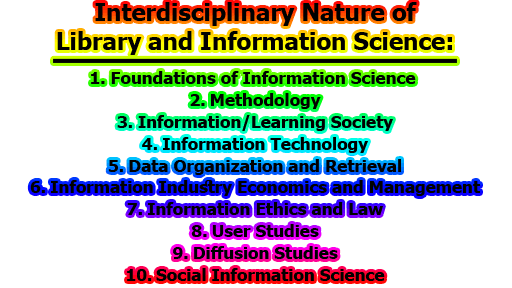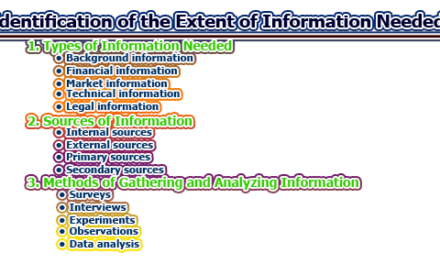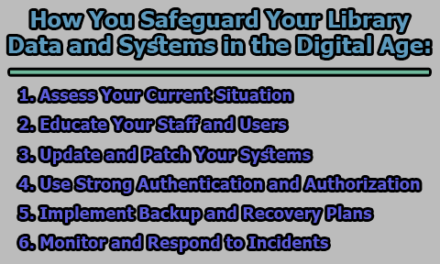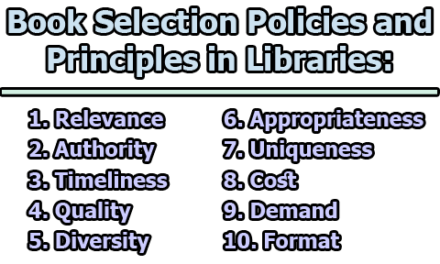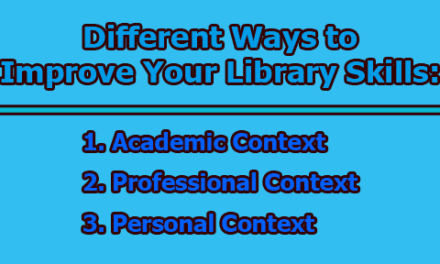Interdisciplinary Nature of Library and Information Science (LIS):
LIS is evolved through the contribution of many disciplines including science, social science, arts and humanities. Its interdisciplinary nature has been discussed by many experts through its research contributions. The concept of category or category analysis is one of the core fundamental bases of the LIS field. In this article, we are going to discuss the interdisciplinary nature of the Library and Information Science field through the concept of category.
- Foundations of Information Science: history of information science and librarianship, archival science, history of knowledge formats (manuscripts, print and digital), information science epistemology, history of libraries and librarians, library and information science as a profession.
- Methodology: quantitative and qualitative research, bibliometrics, informatics, bibliography, domain analysis, webometrics.
- Information/Learning Society: social and cultural aspects of the information society, sociology of knowledge, social communication, electronic learning, information literacy, information science education, lifelong learning, reading, the application of technology in teaching, reading habits, reading encouragement.
- Information Technology: communication and computer networks, document delivery systems, structure of computerized systems, programming languages, multimedia, information retrieval systems, systems analysis, artificial intelligence, human–computer interaction, information architecture, digital security systems, website construction, networks technologies, knowledge representation, search tools.
- Data Organization and Retrieval: classification schemes, metadata, indexing, text mining, abstracting, knowledge organization, taxonomies, thesauri, ontology, vocabulary control, online searching techniques, reference work, and the semantic web.
- Information Industry Economics and Management: comparative intelligence, databases, digital libraries, information industry market, information management, information manipulation, knowledge management, information centres and libraries management, collection management, electronic commerce, influence of websites on marketing.
- Information Ethics and Law: copyright, digital security, digital divide, censorship, Internet crime, free access to information, information policies, information licensing and fair use, information privacy and ethics, credibility of information.
- User Studies: human information behaviour, information-seeking behaviour, information needs, reference interview, user-information, scientist interaction, usability of web information.
- Diffusion Studies: information dissemination, communication theory, message theory, information centres and libraries, electronic dissemination.
- Social Information Science: information needs of different cultures, information education, power and ethics, social information banks, social information sections in school and public libraries, printed and electronic self-help sources, the social information scientist, community information, information diffusion in multicultural societies, health information centres, social networks, bibliotherapy.
In conclusion, library and information science is an interdisciplinary field that draws upon a variety of disciplines, such as computer science, psychology, sociology, education, and many more. It is a constantly evolving field that adapts to changes in technology, user needs, and societal trends. The interdisciplinary nature of library and information science is what makes it so dynamic and versatile. It allows professionals in the field to approach problems and challenges from a variety of angles and to develop innovative solutions. This interdisciplinary nature also means that library and information science professionals must have a diverse skill set and be able to collaborate effectively with experts from other fields. Overall, the interdisciplinary nature of library and information science is essential to its continued success in meeting the needs of users and communities in the 21st century.

Library Lecturer at Nurul Amin Degree College

